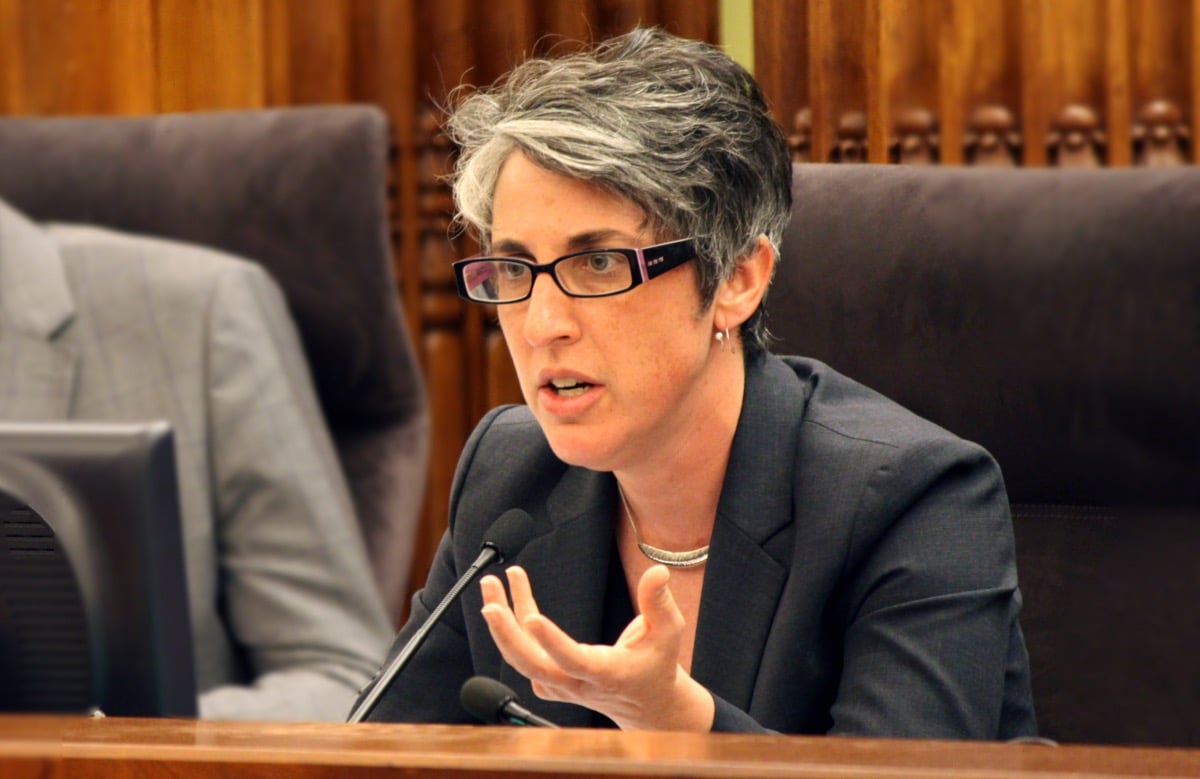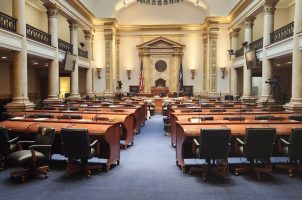DC Sports Betting Audit Raises Questions About Local Business Involvement
Posted on: July 11, 2021, 10:58h.
Last updated on: July 12, 2021, 09:02h.
A report released last week by the Office of the DC Auditor raised several issues with the DC Lottery’s $215 million no-bid contract to operate sports betting in the nation’s capital. Among the claims auditors made was that the Greek company was woefully short on meeting the required goal for subcontracting to or making purchases from local businesses.

However, both the company and the agency in charge of promoting and developing local businesses raised several issues themselves with the audit.
Most contracts awarded in the District of Columbia valued at more than $250,000 mandate that 35 percent of the contract’s value go to certified business enterprises (CBE). That’s according to a release the auditor issued on Thursday. The qualifications for CBE status stipulate, among other things, that the business must be located within the District and the CEO and other high-ranking managers must work in DC as well.
The audit is the latest controversy surrounding the sports betting contract that’s been criticized even before the DC Council narrowly approved it two years ago. Within months of its passage, Councilman Jack Evans, who led the effort to get the contract through, resigned before he could be expelled for numerous ethics violations.
The District’s sports betting law gives the Lottery exclusive rights to offer a mobile sports betting application anywhere within Washington, aside from land owned by the federal government. In addition, it allows for retail sports betting at sports arenas and mobile betting through that operator’s app within a two-block radius. Bars, restaurants, and other businesses also can offer mobile and retail sports betting within their confines.
Finger-Pointing on DC Sports Betting Contract
Auditors found that through the first year, Intralot had not even spent 1 percent of the contract on CBEs. In addition, it found that Veteran Services Corp. (VSC), a CBE hired by Intralot to manage operations, had just two employees.
As a result, the auditor’s office tried to investigate who actually handled managerial duties. However, Intralot denied requests to provide the information.
It also found that the Department of Small and Local Business Development (DSLBD) initially gave CBE credit to two other businesses for work those companies did not perform.
Further, the report stated that neither the Lottery nor the DSLBD, the agency responsible for the CBE program, could not provide any documentation that work credited to CBEs was actually handled by those businesses.
The audit’s executive summary stated both agencies blamed the other for the failure to monitor that.
We have a situation here where no one looks good and all of the players can point elsewhere for where the faults lie,” DC Auditor Kathy Patterson said in a statement.
As a result of that finding, the auditor’s office recommended the DC Council should amend the district’s laws. The revision would give DSLBD the responsibility of ensuring CBEs perform work on all city contracts. Another recommendation was for the Lottery to not approve invoices for payment without getting documentation for all work performed, including work by CBEs.
Agency, Intralot Push Back on Findings
DSLBD and the Lottery agreed with some of the audit’s findings in their responses. But there were several items in which they either defended their practices or provided additional context.
Regarding the VSC workforce issue, DSLBD Director Kristi Whitfield noted that there are 26 people working on the sports betting contract, and that – reportedly – all of them report to VSC. She added that the subcontractor began adding staff after the sports betting app, called DC Gambet, launched in May 2020, with the company now up to six employees.
Whitfield also noted that the $215 million figure mention in the contract is a ceiling for Intralot, and not a guaranteed amount. Further, she said that COVID-19 impacted sales, with initial sales less than half of the original projections. That will also impact how much CBEs will earn.
It should be noted while Gambet has struggled, William Hill, which operates a sportsbook at Capital One Arena in DC, has generated a larger handle than Gambet. William Hill also offers online betting, but because of DC law, the app is only available within a two-block radius of the arena.
Last month, BetMGM launched in partnership with the Washington Nationals.
Gambet critics have noted that the lines offered on the app typically have larger hold percentages than other sportsbooks.
In a statement to the Washington Business Journal, Intralot blasted the audit report saying it made “mischaracterizations” and included inaccuracies. The company said it’s paid $3.9 million to CBEs since the contract began. That figure represents 30 percent of the gross revenue.
“In more than 10 years of partnership with the DC government, with both the Lottery and now the sports betting program, Intralot has always sought to perform to the letter and intent of contract terms and the law, and we will continue to do so,” the statement said.
DC Council Members React
DC Councilmember Elissa Silverman requested the audit in September 2019. That’s after she raised concerns about Intralot’s relationship with VSC on another Lottery contract, and whether VSC actually met the District’s qualification standards.
In tweets after the audit report was released, she said Gambet was an “embarrassment” for the Lottery, and that the sports betting contract was a “sham.”
Also lookee here: The sham of DC's sports betting contract continues. Some @councilofdc members said they voted for this no-bid, no-good contract b/c of local, minority-owned biz who would benefit & $$ to violence prevention. Well @ODCA_DC finds that hasn't happened & it's a mess https://t.co/xETgmpnVpH
— Elissa Silverman (@tweetelissa) July 7, 2021
Councilmember Kenyan McDuffie, who chairs the Council Committee on Business and Economic Development, said in a statement he was concerned about how the Lottery and DSLBD monitored for local business participation.
“This report reveals yet another example of agency finger-pointing, when what residents and small businesses need is accountability and transparency,” he said. “When executive agencies neglect CBE requirements, District residents, workers, and small businesses bear the costs.”
McDuffie added that he would look to find “legislative solutions” to make sure District agencies follow local business participation guidelines.
Related News Articles
Most Popular
Genovese Capo Sentenced for Illegal Gambling on Long Island
NBA Referees Expose Sports Betting Abuse Following Steve Kerr Meltdown
UPDATE: Former Resorts World & MGM Grand Prez Loses Gaming License
VEGAS MYTHS RE-BUSTED: The Traveling Welcome to Las Vegas Sign
Most Commented
-
UPDATE: Whiskey Pete’s Casino Near Las Vegas Closes
— December 20, 2024 — 33 Comments -
Caesars Virginia in Danville Now Accepting Hotel Room Reservations
— November 27, 2024 — 9 Comments -
UPDATE: Former Resorts World & MGM Grand Prez Loses Gaming License
— December 19, 2024 — 8 Comments -
FTC: Casino Resort Fees Must Be Included in Upfront Hotel Rates
— December 17, 2024 — 7 Comments
















No comments yet